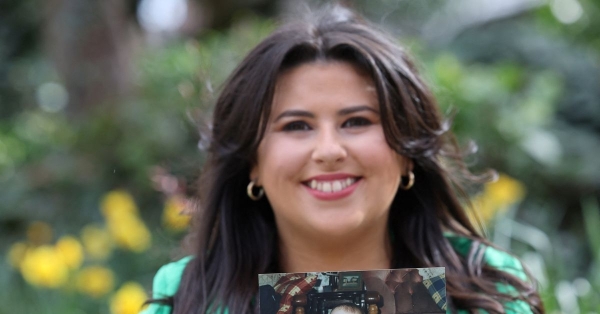Northern Ireland’s ‘peace babies’ desperate for more progress

Moore was born in December 1998. She is Northern Ireland’s "peace baby", a generation that was born shortly after the Good Friday Agreement was signed. Moore is regarded as the embodiment of hope for the future of the region.
Many people didn’t know about the three decades long period of violence until they learned about it at school. Although they did not witness the bloodshed that their parents saw every day, there has been slow progress in many areas.
"I can recall my mummy telling me an anecdotal tale about being in grandma’s and grandpa’s house, and they were discussing barricades. I asked my grandmother "granda, what’s a barrier?" Moore, a Derry social policy and communications worker, spoke of the barriers that residents built to protect themselves.
"We are such a resilient group of people because we have to be. Retrospective is a good thing. We must look back at our past to recognize it and to learn from it. But we can certainly do more looking ahead.
Moore is like other interviewees who were born 1998. He is more concerned about issues such as equality, housing, and social justice than sectarian politics, which still play out among the region’s divided lawmakers. Moore is "very Irish" and does not belong to any political party.
The power-sharing government was established 25 years ago, mandating Irish nationalists as well as pro-British Unionists to work together. It has been inactive for long periods of time since. Most recently, it collapsed due to unionist protests at post Brexit trade checks.
Unionists, who are predominantly Protestant and supported Britain’s exit of the European Union, object to the imposition trade barriers with the rest the United Kingdom in an effort to avoid a tough border with EU member Ireland.
AdvertisementThe majority of Catholic nationalists claim that Northern Ireland was expelled from the EU by a UK-wide vote, even though it was the smallest region and voted 44% to remain.
"Brexit was terrible. Stormont (the Northern Irish assembly), not being up-and-running is absurd," Jessica Keough, Bangor, County Down, said. Jessica is a unionist but considers herself to be Irish and Northern Irish "and not British at any."
"I want Stormont back up and running as quickly as possible. Keough, who is a regular supporter of the Alliance Party’s fast-growing party, said that people need help. Keough, who is not a nationalist or unionist but votes for nationalists in her predominantly unionist constituency, was normally a supporter.
’PROTECTIVE OF PEACE’
Others in their twenties are eager to keep those traditions alive.
"My family is half English and I was raised Protestant and unionist. Courtney Wells, who was born one month after the signing of the peace agreement on April 10, 1998, said that her family and fiance are huge fans of the Orange Order.
"People see unionism as outdated, sectarian, and homophobic. "I am not any of these things."
Wells, who became involved in politics as a teenager, is now secretary to a local branch the Ulster Unionist Party. She went to school in Lurgan, County Armagh, where "you were conscious of sticking to your side in your school uniform."
Northern Ireland’s schools are still segregated by religious lines for more than 90%. Housing in many areas is also segregated.
Emma Rooney was born just three days after the Omagh bombing in 1998, which was the most bloody incident in the "Troubles".
"It is special to be a peace baby, so people who were born around that time feel protected about the Peace and Good Friday Agreement."
Share this article:



